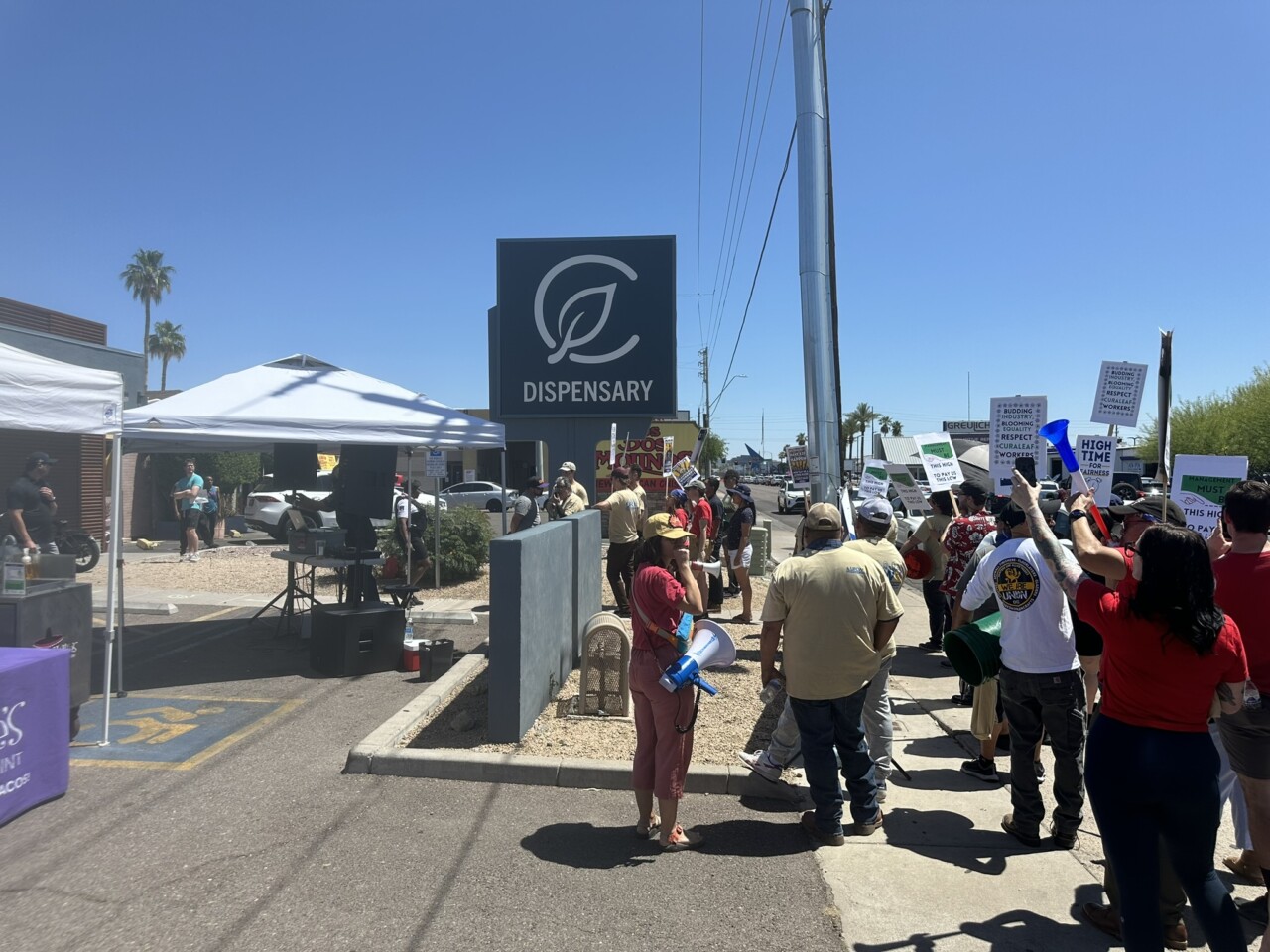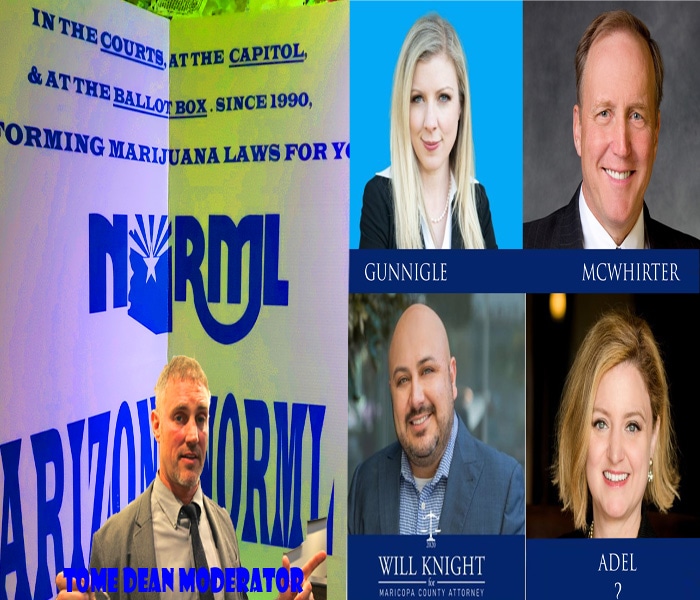It is not just a metaphor when I say I had to give up my balls to enter the Pima County Courthouse. It did actually happen.In 2012 when it was widely said no Democrat in western Arizona had the balls to run for Congress, Beth Weisser, my loving wife, went right out and purchased a matching set of magnetic spheres just to settle any questions; and I have carried them ever since.

I have done court support numerous times in multiple courts, been through TSA and various securities from coast to coast and this was the first time, I have been asked to check my balls at the door. I heartily regret in the retelling that that might sound funny. It was not. When I say I went to the Pima County Courthouse Wednesday January 13th, it was so I could watch my friend, Kyle Caitlin, be sent to prison. So it was not a comedy. It was a tragedy.
In my life of tragedies, I have often turned to journaling to get through the toughest of times Afterwards I would tell people I had not cried that much in any single hour since my wife died. I did a lot of scribbling that morning. Here is some of what I wrote.
9:55–I am sitting beside Marvin Caitlin and we are crying. Marvin, a man my age (late 50s) is about to watch his son, Kyle, be sentenced to 4 yrs hard time. Kyle the war hero, Kyle the stock car champion, Kyle the champion of Tucson’s medical marijuana patient community and one of Tucson NORML’s leading activists. Or, as Pima County prosecutors refer to him: a drug kingpin deserving life behind bars. Back when patient cultivation was allowed in Tucson, Kyle organized a patient collective to help distribute cannabis to patients. You can read about the case here. After years of hopes and hoops, it all comes to an end this morning. I have been seated beside Kyle’s father to give him strength, but we are both sobbing so hard the seats rock.
When the bailiff stands in the front of the courtroom and calls out, “Are there any victims in this courtroom?” Marvin and I lean against each other in our tears. Occasionally he clutches at the air in front of him. Less than 30 away his son sits cuffed and is smiling to the court. Kyle’s smile is a message to the courtroom, to his dad and his girl sitting on either side of me. Kyle is so beatific he seems to shine. Initially I’d ducked in nearly-late and hid in the back till being waved up to sit there and watch Marvin watch his son’s life be destroyed. I too have a son about Kyle’s age, whose life could be destroyed just as instantly. I cannot stop thinking of that as I watch Marvin writhe.
Two days earlier, he had come to PHX to join in our annual demonstration for opening day of the state legislature. Come 100+ miles each way for our little dog and pony show for the largely uninterested legislature. It all feels so hollow now in retrospect next to the seriousness of this morning. Still Kyle used up some of his precious phone privileges to call to his dad from Pima County Jail to be part of that morning as we gathered in the capitol courtyard. Kyle even asked to speak with me and we exchanged encouragements. There was no way I was NOT going to Tucson that morning. But I had not expected to have to feel this much. To just keep crying.
At some point I handed Marvin Caitlin my handkerchief, it was a tie-dyed present from 1988 from my late wife. I have used it as a headband, a blindfold, a rag, a flag, a classroom decoration and for the past three years as somewhat silly, supposedly subversive subtle reference to Bruce Springsteen’s Born in the USA album. Marvin is burying his face in it, sobbing, blowing his nose in big aching gasps. This is, without a doubt. the best usage it has ever had.
10:11–The cases have started rolling through. Right now, they are about to decide if they are going to separate a different family over marijuana. Two felony counts. The woman’s lawyer says, something about “a hard-working single mom … Her 2-year old has special needs.” She gets probation instead. She is dressed in nice clothes and gets to stand w her lawyer at the defense attorney’s table. Kyle sits shackled, part of an orange jump-suit clad quartet.
“Watching all this courtroom drama, must be, first a heartbreaking-, then a learning-experience, then a soul destroying existence.” (Shortly after I write that line, about halfway through Kyle’s sentencing, the court clerk who brought Marvin, I and Chrissie, Kyle’s girlfriend, a box of Kleenex, would come back over and grabs one for herself.)
The beatific serenity Kyle watches everything with is far evolved from my state. When I first saw Kyle’s smile and his dad’s breaking heart, the tears streaming down his unshaven face, I broke into tears, almost bolted from the room, didn’t think I could handle it. Now, as Marvin rocks against me and clutches my handkerchief, I keep looking at Kyle and figure if he can be that strong, I can at least cry in one place.
Then the bailiff calls Kyle’s name and our end of the courthouse benches rise in unison. The sound of it is so loud it has force. As far as he can, without yanking the wrists of the man chained next to him, Kyle waves to us. It is a breathless moment. The whole court pauses, not expecting our synchronized motion. Then after standing a couple of sentences into the court instructions we sit and try to the digest the legalese. The judge explicitly explains his hands were tied by state mandatory minimum sentencing guidelines. He asks Kyle if he has any final comments before sentence.
Kyle says he is sorry for the pain his case has caused, the time it has taken and adds, “If not for the decision by the Supreme Court last week to uphold the appellate court’s ruling, my actions were legal and just.” He is referring to the decision that put to rest once and for all that Arizona would not accept patient-to-patient sales as legal after years of arrests and controversy. Then Kyle Caitlin looks at the judge and we all stare at his stoic silence. Three years of struggle suddenly are completing in this moment. Kyle stares at the judge unafraid.
Four years.
Marvin is writhing like whipped. As the judge explains the conditions and requirements of the sentence, there is a sound in his voice that is hard to define. Kyle’s attorney, Brick Storts, then asks for something that audibly surprises me and most of the gallery—a motion for executive clemency, a governor’s pardon (ARS 13-603 [L]). When I realize the difficulty of what the counselor is asking for, I begin to pack and ready to leave. I figure this is an empty gesture, a dead end. Storts is, in fact, asking the judge himself to request the order of executive clemency, asking the judge to put his career on the line to contact the governor and ask for mercy for some guy on a marijuana charge.
Then the judge does an amazing thing, a thing so amazing this article had to be written: he said … maybe. Actually, he clarified that he could not rule on that request in the current situation, but would review it and was leaning in the affirmative, considering the complexity of the case and the immense community support Mr. Caitlin has received. And then, in a move counter to current AZ judicial practice, he discussed Kyle Caitlin’s medical marijuana defense as community service not as a sham and not a criminal enterprise. While the tone was extraordinary, the mere mention itself was amazing. The actual language of the AMMA says that a patient loses all rights of a medical defense if they are charged with violating any part of the law. Prosecutorial SOP prevents defendants from even being able to testify to their participation in the state’s medical program. But this judge not only acknowledges Kyle’s participation in the program, he then makes a point of additionally mentioning that Kyle’s enterprise was to the best of his ability in compliance with state law.
And then, in open court, the judge said the following sentence: “If it were up to me, Mr. Caitlin would NOT be going to prison.”
After that everything was a blur. Our hearts rose and sank simultaneously. As Marvin would later phrase it, “After all these years of fighting this thing to finally find out what this judge thinks and feels. To find there is a human in there after all.” En masse, after a final round of heartrending wordless goodbyes to Kyle, the dozen of us hustled out to the corridor as fast as we could to semi-circle around the attorney to have him explain what we had just seen.
Like a coach, Storts gathered us around. “When a prisoner tries to get executive clemency from his cell, his chances are less than one in a thousand. But I personally have had success with this type of motion and this is the first time this judge has EVER gone so far as to say he would consider signing such an order. I can’t make any promises, but this is a victory.”
But it doesn’t feel that way to the crowd that finds itself on the sidewalk in front of the courthouse by the time I catch up to them. After signing the proper paperwork to recover my magnets, I find a contingent of Kyle’s supporters on lingering over their cigarettes and though a non-smoker, I want to be close to them. I don’t want to think about what I have just experienced alone.
Even with my precious property dutifully returned to me, I feel weak, gutted. Marvin notices I have been eyeing my handkerchief which he still clutches in his fist. “You know you have lost this for good,” he laughs, but hands it to me anyway. I thank him & hold it tightly. I look at Marvin a lot and promise him I will do something to make this morning matter, even though at the time I have no idea what.
–Mikel Weisser is the state director of Arizona NORML and writes from the left coast of AZ










Leave A Comment
You must be logged in to post a comment.